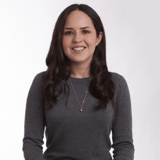Summary
As the first-ever user researcher at McKinsey, Megan Blocker pioneered the practice of UXR at the firm, establishing and growing the team to more than 50 researchers, data analysts, and data scientists. But “growing up” as a user researcher in management consulting meant she was unburdened by many of the expectations researchers face in more traditional contexts - instead, she was able to combine the best of management consulting with research and design practices to break barriers for how and where research was applied. In her talk at Advancing Research, she’ll share how she applied core management consulting practices to her research work and how those same practices can help you succeed from study to study as well as when scaling research across your organization.
Key Insights
-
•
The principle of putting the most important message, or the 'so what', right upfront is a deeply ingrained practice in management consulting and critical for influence.
-
•
Consultants come equipped with a 'brash willingness' to challenge power and take bold stances on what should come next, a practice user researchers should adopt.
-
•
User researchers often stop at insights, but should assert provocative, inspiring recommendations that advocate for specific directions.
-
•
Consultants rely on a broad variety of data including expert interviews and secondary sources, not just user data; researchers should likewise expand their data sources.
-
•
Focusing relentlessly on outcomes and defining measurable midterm indicators enables teams to innovate faster and track real progress.
-
•
Reusable, road-tested frameworks from consulting serve as a treasure trove that can accelerate communication and amplify research impact.
-
•
McKinsey’s culture includes an 'obligation to dissent' that pushes individuals not just to notice problems but to act on opportunities to improve.
-
•
Dynamic, frequently changing teams and a decentralized yet committee-driven structure force consultants to master stakeholder navigation and coalition building.
-
•
Embedded researchers have an advantage over consultants in experiencing the long-term impact of recommendations and can use this to deepen outcome-oriented research.
-
•
Proactively reaching out to organizational leaders about upcoming big decisions positions researchers as trusted advisors rather than mere data providers.
Notable Quotes
"But what’s the so what? Get to the point and don’t make me wait."
"Without adoption, value is zero."
"If you see a problem or opportunity, you should do something about it."
"User researchers stop at findings and insights, but often do not advocate for a direction."
"We can all become experts at stuff if we work hard enough – sometimes you have to fake it till you make it."
"Put the most important message right up front no matter what the format."
"Bringing in expert interviews and secondary data gives you an outsider’s perspective to challenge the status quo."
"Hoard and reuse your jewels. Those proven frameworks can amplify every hour of your work."
"Teams are better at solving problems and coming up with innovative ideas than solo practitioners."
"Establish yourself as a trusted expert advisor whose work drives meaningful positive change."
Or choose a question:
















More Videos

"Culture often makes the biggest difference in how research ops works across industries."
Kate TowseyAsk Me Anything (AMA) with Kate Towsey
April 2, 2025

"Service experiences are only as inclusive as their weakest checkpoint."
Gabriela BarnevaOperationalizing Inclusive Design in Service Design
November 20, 2025

"How do we show the value of the work that enables us to really advocate for the humans whom we are serving?"
Dr. Jamika D. Burge Robert Fabricant Peter Merholz Noam Segal Teresa TorresA Genuine Conversation about the Future of UX Research
March 20, 2024

"The best cultural adaptations fit so seamlessly into the experience that local audiences don’t even notice the difference."
Chui Chui TanGlobal insights: Embracing international and intercultural research for innovation
March 12, 2025

"If we can do many of these UX roles, we’re unicorns, but it still takes the same amount of time."
Chris HodowanecAgile + User Experience: How to navigate the Agile landscape as an UX Practitioner
November 16, 2022

"Our teams focus on entire customer outcomes, not just features."
Scher Foord Corey Greenltch Sarah RoweTurn the Ship Around: How to Apply Design Thinking Across Your Organization
June 10, 2021

"We talked all about resilience, curated by myself yesterday."
Bria AlexanderDay 3 Welcome
September 25, 2024

"This client project is very deliberate and explicit in focusing on culture and values."
Stephen PollardClosing Keynote: Getting giants to dance - what can we learn from designing large and complex public infrastructure?
November 7, 2017

"Self-identifying with a disability can humanize accessibility issues beyond checklists and code requirements."
Sam ProulxMobile Accessibility: Why Moving Accessibility Beyond the Desktop is Critical in a Mobile-first World
March 10, 2022
Latest Books All books
Dig deeper with the Rosenbot
What factors led Mary Lynn Williams to leave her UX leadership roles at major tech companies?
Why do designers often rely on legal compliance approvals instead of legal knowledge when designing privacy features?
How can professionals view their career paths as long marathons with scenic detours to maintain resilience?
















